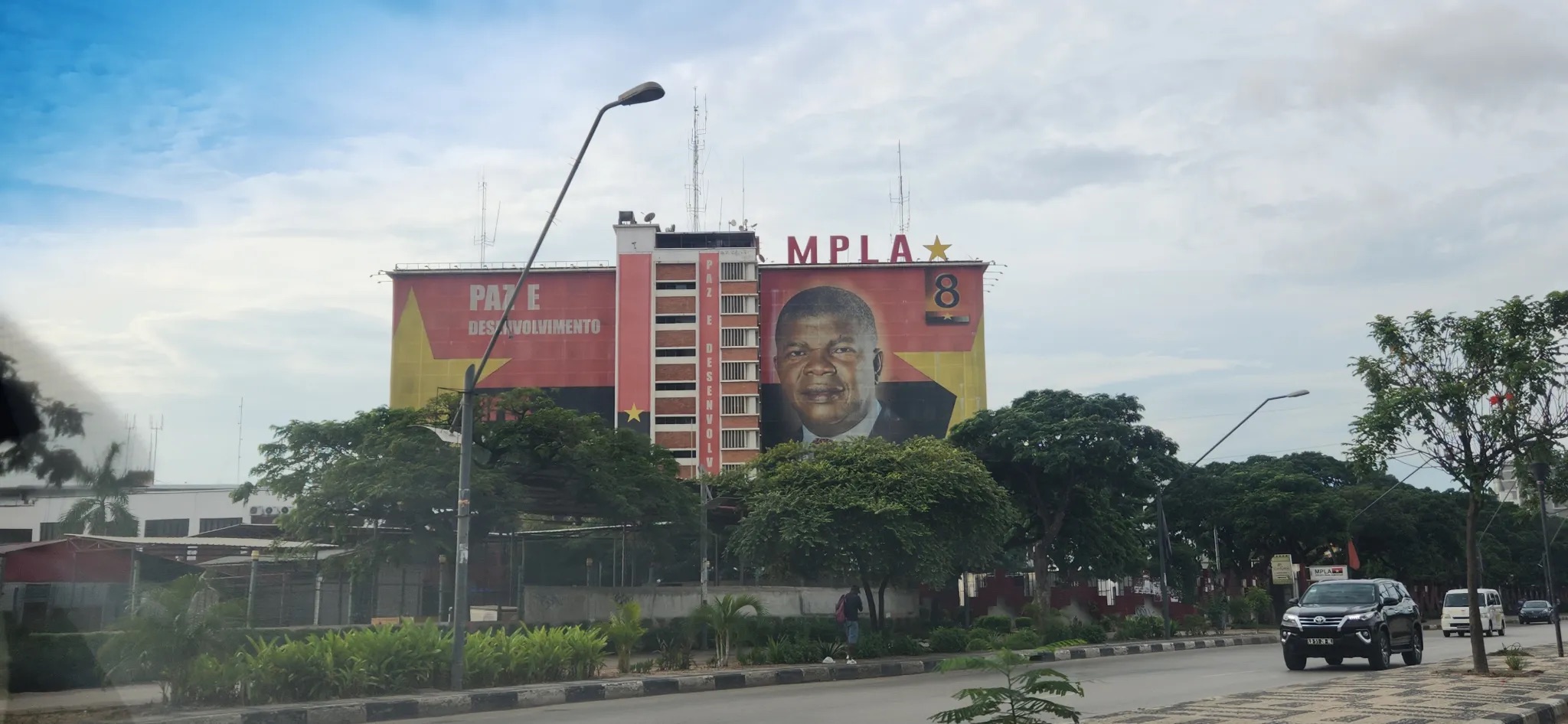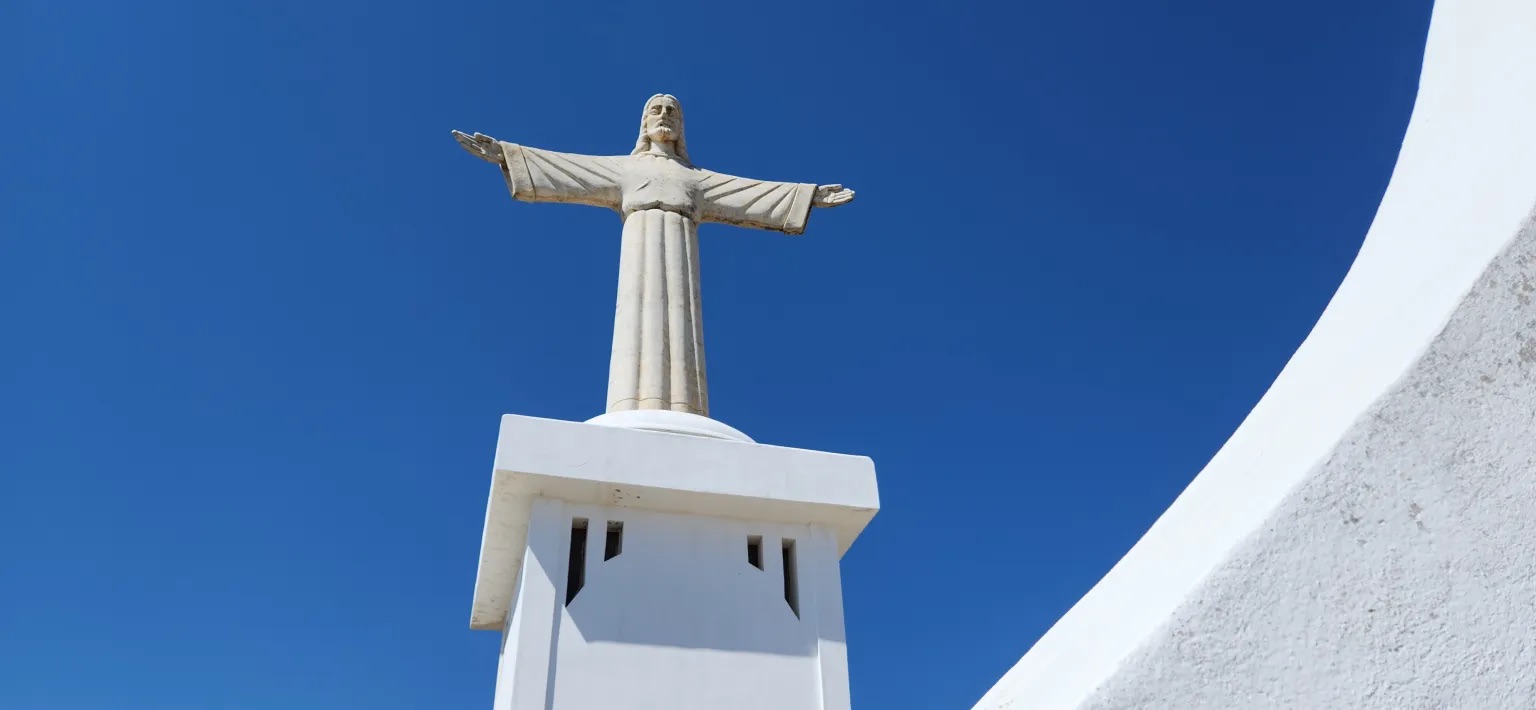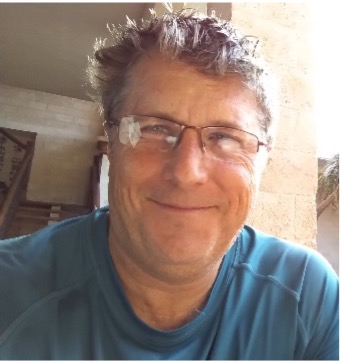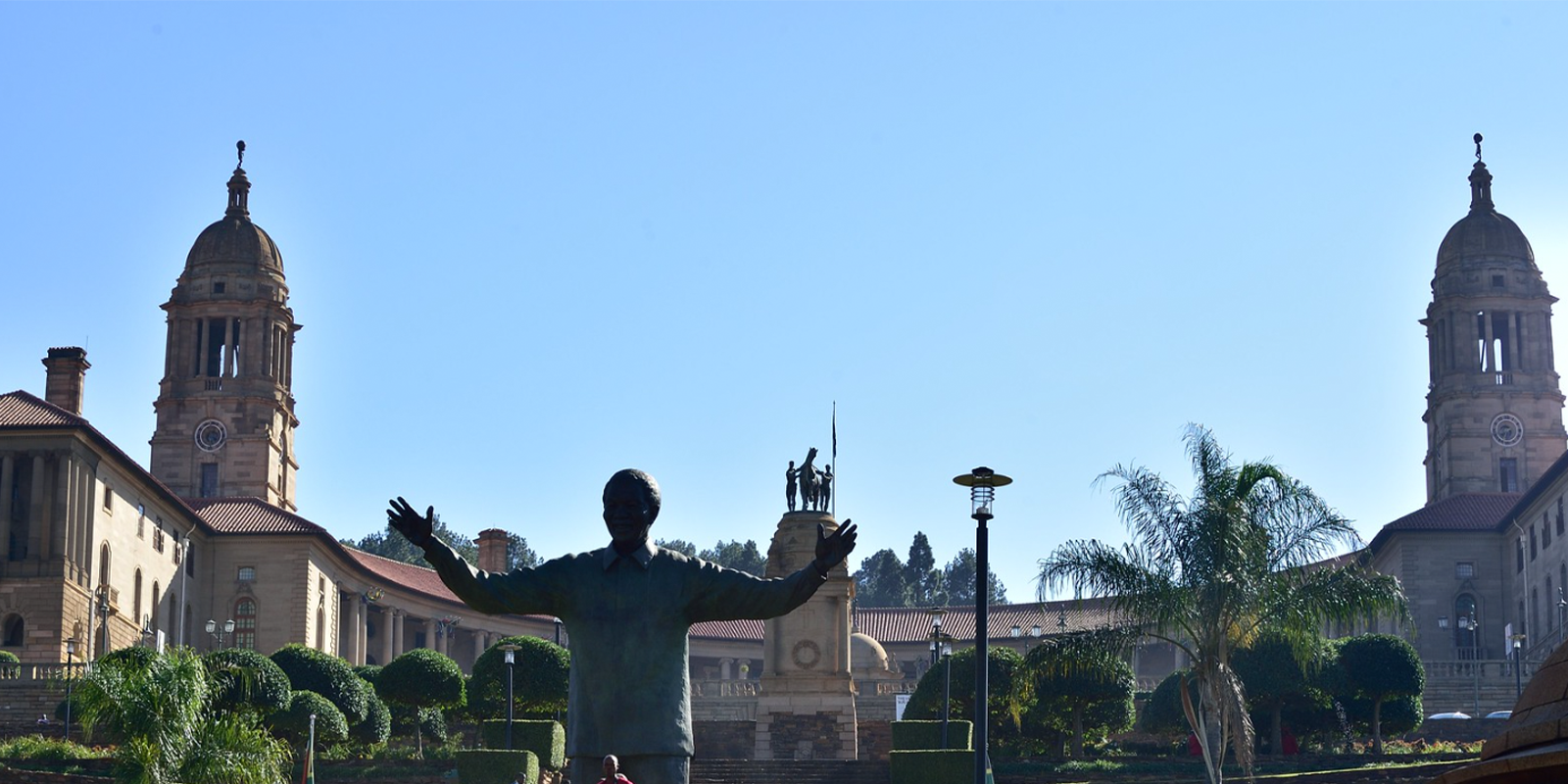News
Angola’s Salvation Lies in the Hands of its Own People
Unita’s political failure in the early 1990s cemented a political economy that was extractive and corrupt, essentially designed around distributing the rents (mostly from oil, but also property, diamonds and import/export revenues) to the elite.

On a hill to the south of Lubango, Angola’s second-largest city, is a giant statue — Cristo Rei — depicting Jesus, arms outstretched, looking over its 900,000 inhabitants. While it may offer some comfort, it has been of scant help over the past two generations, watching over collapse, four decades of war and desperate poverty.
Nestling in a valley atop the Huila Plateau in Angola’s southwest, the city offers cool relief from the relentless humidity of the coast. It is no surprise that the colonialists picked the spot to settle 140 years ago.

Most of the original settlers, around 1,000 of them, came from the Portuguese island of Madeira. The settlement gradually expanded with the construction of the railway to Moçâmedes, later named Namibe, 190km away on the coast, and the development of commercial farming in the area. In the 1920s the city was renamed Sá da Bandeira and laid out in a Portuguese style around a cathedral, commercial and banking centre, theatre, post office and schools. It is still possible to time its colonial heyday from the proliferation of Art Deco buildings in the city.
After Angola’s independence from Portugal, the city was renamed Lubango. During the Angolan Civil War which followed and the related Namibian War of Independence, the city served as a major base for Cuban, Swapo and Angolan government troops. Its strategic importance is still hinted at by the presence of MiG-29s at its airport.
The rise, fall, and excruciatingly slow recovery of its once vibrant economy is a metaphor for all of Angola.
Fifty years ago, on 25 April 1975, a segment of Portugal’s military took matters into their own hands, staging a coup which removed a 70-year dictatorship and setting the country on a path towards democracy, European integration and greater prosperity.
Hope becomes despair
The effect in Portugal’s African colonies was similarly electric, the independence process snowballing as the Portuguese authorities stepped back, most of them grateful for a reprieve from 15 years of guerrilla war. The effect, however, was much less positive than in the colonial metropoles as ill-prepared regimes and ill-thought-out transitions turned hope into despair.
It became, in the context of the Cold War, a winner-takes-all vacuum. The Alvor Agreement of 15 January 1975, named after the Algarve town where it was signed by the government of Portugal, the MPLA (People’s Movement for the Liberation of Angola), FNLA (National Liberation Front of Angola) and Unita (National Union for the Total Independence of Angola), formally granted Angola its independence.
Despite establishing a transitional, representative government, the agreement soon fell apart in an environment of mistrust, superpower meddling and naked self-interest. The war of independence was replaced by a civil war which continued, despite various peace attempts, until Unita leader Jonas Savimbi died in combat in 2002.
Extractive and corrupt
The winner-takes-all mentality has remained.
Unita’s political failure in the early 1990s, which reached its nadir with Savimbi’s death, cemented a political economy that was extractive and corrupt, essentially designed around distributing the rents (mostly from oil, but also property, diamonds and import/export revenues) to the elite. In terms of stolen and wasted revenue, this had severe costs for Angola, a country of 35 million people where the GDP per capita is just $2,300. A 2011 International Monetary Fund report identified that public funds of $32-billion linked to the state oil company, Sonangol, were unaccounted for.
Oil accounted for about half of Angola’s GDP of $67-billion in 2022 and more than 90% of its exports. Much of these proceeds were wasted for 40 years by people linked to the regime spending money on activities unconnected to the domestic economy — “property, parties and Champagne”, as one observer put it. This was supplemented by a feast of debt to fund mega-projects, rising to $49-billion by 2024.
This wastage may have eased the political transition, but it increased Angola’s economic challenges arising from a civil war that displaced four million people. Coupled with a plunging oil price, declining oil production (from 1.8 million barrels per day in 2008 to 1.1 million in 2023), failure to develop alternative economic sectors — diversification — and to encourage private sector investment, and a poor regulatory (and thus investment) framework, annual oil revenue has declined from $80-billion to $30-billion.
One-third of this amount is payable to the state in taxes and royalties. But with external debt service costs at $9.9-billion in 2024, effectively all money collected from oil is payable to debtors. As a result, an additional $15-billion has had to be borrowed each year to fund government expenditure, around one-fifth of GDP. Angola left Opec in 2023 to expand its production capacity, but this will not happen without considerable external investment, given the deep-water nature of its known oil reserves.
Rising unemployment
The result has been low growth, high inflation and rising unemployment. More than 550,000 new workers joined Angola’s labour force in 2023, according to the World Bank, but just 10,000 jobs were added. As a result, urban and youth unemployment surged to 42% and 58%, respectively, up from 39% and 53% a year earlier, with 36%, or 13.5 million Angolans, now living on less than $2.15 a day.
Luanda, the largest Portuguese-speaking city outside Brazil, is the scene thus of both dearth and excess for its 8.3 million people. The high-rise offices, hotels, monuments, museums and historic buildings of the splendid Marginal, the seafront promenade alongside Baía de Luanda, the Bay of Luanda, which sweeps towards the peninsula of the Ilha do Cabo, home to beaches, bars and restaurants, hides behind its glamorous façade a vastly different, febrile city.
Whereas the state has sunk vast amounts into the reconstruction of the Marginal, stadiums, a new airport and other “big” infrastructure such as the satellite city of Kilamba, for the three-quarters of Luandans who live in informal settlements, known locally as musseques or bairros, life has not changed significantly. If anything, it has probably got worse, as land without title has been seized for elite-driven property developments. Throw in galloping inflation and rising unemployment, and little wonder that the opposition dominates the vote in Luanda.
The situation is worse, still, in the provinces, far away from markets and the spigot of government largesse. Commercial agriculture in these areas has failed since 1974 — for example, Angola, once the world’s third-largest coffee producer with more than 209,000 tonnes in 1973, now produces just 16,200 tonnes a year.
The development answer here requires improved inputs, a revolution in land ownership, an aligned banking system and opening up access through a network of roads and ports connecting markets.
Angola is blessed with oil, gas, diamonds, natural harbours at Lobito and Luanda, and nearly 60 million hectares of arable land. The development problem rests in the intersection, again, between politics, governance and economic policy choices which, far from changing with the end of the war, has continued in the same pattern.
Relentless pursuit of power
Abel Chivukuvuku was among the senior Unita officials wounded in the MPLA attacks after the abortive 1992 elections. A long-standing member of Unita, Chivukuvuku broke away in 2012 to form his own party, PRA-JA Servir Angola, after disagreements with the Unita leadership.
For the 2022 election, however, he was in a coalition with his old party under Adalberto Costa Júnior.
“Everything that [the MPLA] does,” Chivukuvuku reflects, “is to take power. They have no ideological convictions. Everything they do is subordinated to remain in and control power, not to build the society.”
This includes the practice of blaming outside influences and the constant denial of responsibility for their actions. In the circumstances, the only way that the liberation movements can be “removed from power” is “by splitting the ruling party, consolidating power among a broad opposition front, assuaging the external fears about change, particularly in Europe and the US, and [in the case of Angola] to rebrand Unita”.

Political power is key to retaining commercial and financial privileges among the MPLA-linked elite. The economy is controlled, says Chivukuvuku, by “three or four enterprises which get all the contracts”. This is why, in the face of the growing electoral threat to the MPLA, “Angola is slipping into mild authoritarianism”. In the government, jobs and promotion, and thus access to contracts, are linked to party membership.
Unita’s leader, Costa, an electrical engineer by training, claims that his party won the 2022 election with about 67% of the vote, a result partly due to divisions within the MPLA, between factions headed by former president José dos Santos and his successor, João Lourenço, who took over in 2017.
Winning the vote and winning the election are different challenges, however, says Costa, for Angola “lacks a democratic system”, not least in that the courts are not independent.
“To take power in countries like Angola, Uganda, Congo and Mozambique,” he says, oppositions need to have a strong organisational basis, a media system that can operate independent of the state, to invest in technology, to protect the vote by building links with civil society and inside the regime, especially the security forces, to lobby international and regional partners, and to draw in the youth.
Better the devil…
Filomeno Vieira Lopes leads the Bloco Democrático. He has a similar message, that the opposition lost the 2022 elections “because the state institutions were captured. The only thing that will change this,” he notes, “is pressure.”
All agree that change has to come from within. In a version of “better the devil…”, for all of the preaching about the values of democracy and good governance, the West has continued to back the Luanda regime, given the importance of Angola’s oil and other mineral resources and the multibillion-dollar plan to revive its railway line to the southern Congo to access minerals needed for renewables.
The population is hungry for change. The turnout at recent launches of Estado Rico, Estado Pobre — the Portuguese translation of my book Rich State, Poor State — in Angola is but one hint that Angolans are keen for answers.
“They are tired of hearing speeches and promises,” says Chivukuvuku. “They want to see a change in behaviour from politicians. That’s all that they will believe.”
Or as Costa says, “It’s a mistake for citizens to wait for leaders to tell them what to do. We have to do this together.”
Lubango’s statue of Christ reminds us that salvation does not depend on divine intervention or even dramatic actions by foreigners. Instead, it will demand a reform process led by a change in domestic politics.
The only hope for a more just social and economic order depends on the Angolans themselves. That is a message that has meaning for voters farther afield.
This article originally appeared on Daily Maverick.


